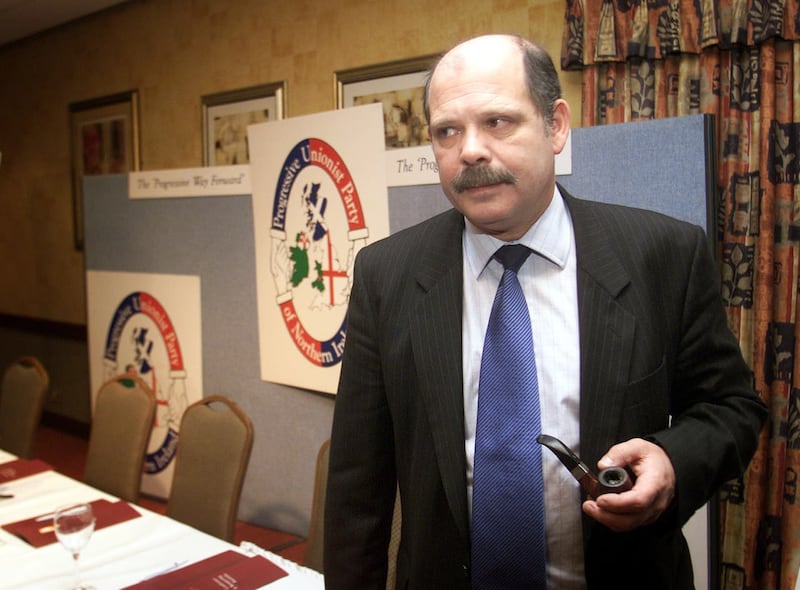When the Loyalist Communities Council was established on October 13 2015, I was generally supportive.
It had concerned me that the loyalist paramilitary groups which announced the original ceasefire on October 13 1994 were finding it so difficult to transition entirely from their old ways and were quite obviously still armed and active, still recruiting and still of the view that their on-the-street muscle was required.
The 2015 statement acknowledged a number of realities: “A vacuum in loyalist communities has been created which has led to significant disenchantment with politics, and to our communities being largely ignored and neglected. It is no coincidence that the attainment levels of working-class loyalist young people are the lowest in the United Kingdom.”
That vacuum had been created by the electoral collapse of the PUP, which had no seats in the Assembly and barely a handful in local councils.
For most of the time after 1921 working-class loyalism was an electoral sideshow; so much so, in fact, that it was the NI Labour Party which took up the socio/economic causes that impacted that community the most.
When the DUP was formed in 1971 it steered itself towards working-class loyalism, dismissing the UUP as the party of big house unionism.
Yet during the negotiations in the run-up to the Good Friday Agreement, David Ervine told me that the DUP had little interest in working-class loyalism other than as the “usual old voting fodder”.

On April 9 2018, the LCC issued a second major statement: “Loyalists must have ownership and control of their own future. Now is the time for a renewed loyalism, with a new impetus, to meet the challenges ahead. We want to see a better future for all in Northern Ireland and where the residual effects of conflict are recognised and addressed in a reparative manner. We must shape our own destiny, and with the co-operation of others, ensure loyalist communities are at the centre of Northern Ireland’s peace and political transformation.”
The difficulty for the LCC right now is that it is trying to ride three horses: completing the transition process; trying to address the socio/economic/educational challenges across huge swathes of loyalism; and finding a coherent, listened-to and respected political/electoral voice for the communities it says it represents.
Personally, I think that’s too big a challenge. So, what I think it should do is focus entirely on dismantling the structures of loyalist paramilitarism.
Let’s face it, there is no need for the UDA, UVF or RHC in any shape or form. No need, either, for any of the assorted off-shoots and factions.

Indeed, their continuing existence and activities does absolutely nothing to deliver better housing, jobs, infrastructure or educational improvement to the areas in which they operate.
They hinder rather than help; for how can they help others, when they can’t even, 30 years after the ceasefire, help themselves. Completing the transition should be the only role for the LCC.
- Paul Givan was ridiculously naive and unbelievably stupid to meet the LCC - Tom KellyOpens in new window
- Alex Kane: This is why loyalist paramilitaries still influence mainstream unionist thinkingOpens in new window
- Alex Kane: Can loyalist leaders explain to me what the hell is going on?Opens in new window
There are already enough community groups on the ground to take up the challenge on the socio/economic et al front. There are good, eloquent, courageous voices doing wonderful work already, and it is those groups and voices which need to be heard by key players in our executive departments.
My own view – and it isn’t a new one – is that the shadow of loyalist paramilitaries (and the groups don’t even speak with one voice) almost certainly makes it much more difficult for the genuine community workers to put their case. Particularly if it is the LCC, rather than them, which is getting the one-to-one with DUP ministers.
Most important of all, though, working-class loyalism needs to establish and build its own political/electoral vehicles.
It should never have needed the NILP and it rarely saw much in the way of societal dividends when it tended to rely on either the UUP or DUP. As for Vanguard (the UUP breakaway set up by William Craig in late 1971), it went out of its way to encourage the growth of the UDA. In other words, I would argue that the relationship between mainstream unionism and loyalism has always been a one-sided one.

And one of the reasons I think that the PUP and UDP failed to make an electoral breakthrough after 1998 is that there is long-standing unwillingness by working-class unionism/loyalism to vote for political parties with significant input from paramilitaries. Which is why any new vehicle needs to be free of those links from the outset.
There remain enormous challenges for working-class unionist/loyalist communities. They need addressed. I thought the LCC in 2015 might be able to be a breakthrough vehicle, but that moment has passed and it’s difficult now to avoid the conclusion it is hindering the very change it was set up to deliver.




